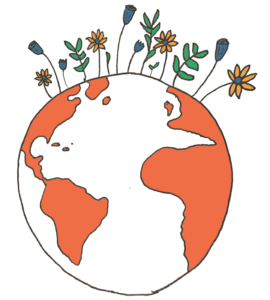Nonprofit Spotlight: Little Village Environmental Justice Organization
 Giving
Giving
In December 2021, PennyLoafer donors collectively gave to Little Village Environmental Justice Organization (LVEJO)!
The Rundown
Years founded: 1994
Leadership: Executive Director, Kim Wasserman, joined LVEJO in 1998. After her 3-year-old was diagnosed with asthma from environmental pollution, she helped organize local residents in a decades-long effort to shut down two of the country’s oldest and dirtiest coal plants. In 2013, she won the Goldman Environmental Prize aka the “Green Nobel Prize”.
Issue they address: environmental injustice in Little Village, a working-class, primarily latino community on the southwest side of Chicago.
What they do: Organize the community and advocate for environmental justice.
How they do it:
Research & advocate for local, state, and federal environmental policy.
Transform former industrial sites into open air, green spaces.
Organize community members and develop youth leaders to address environmental issues facing the community, such as clean and safe drinking water and air pollution from trucks.
Run a 12-week comprehensive solar jobs training program that prepares students for careers in solar energy.
Why they were chosen
For 25+ years, LVEJO has organized Little Village residents around environmental justice issues racking up a successful track record, including:
- A 10+ year campaign that won the closure of two of the nation’s oldest and dirtiest coal-fired power plants.
- (A Harvard study linked more than 40 premature deaths, 550 emergency room visits and 2,800 asthma attacks every year to the toxic emissions from the two plants).
- Transforming a former industrial site into a 23 acre park, including a community garden where locals grow their own organic produce.
- Reinstating a job access bus route.
Most recently, they played an instrumental role in passing the Climate and Equitable Jobs Act in the Illinois House, and are laying the foundations for an urban farm in La Villita Park to further promote food sovereignty.

 Learning
Learning
💨 Communities of color are disproportionally located near polluters, such as toxic waste sites and coal plants, and exposed to higher levels of air pollution.
🏥 This concentration of fine particulate matter contributes to health issues, such as lung diseases (including asthma), heart problems and premature death.
🌳 Access to green spaces can improve mental and physical health. Communities of color are almost 3x more likely than white communities to live in “nature deprived” areas (less or no access to green spaces, parks and paths).
🏭 Despite its victories, Little Village still faces environmental challenges. In April 2020, a crew botched the demolition of a smokestack at the former coal plant site in Little Village, and sent a plume of dust over 6 blocks of homes.
📜 In good news, Chicago’s Climate and Equitable Jobs Act (passed in Sept) is a “nation-leading” law that phases out fossil fuels, doubles the state’s investment in renewable energies and expands training and job opportunities in the clean energy sector for communities on the frontlines.
If you enjoyed this and want to get involved, you can support the Climate Change cause on PennyLoafer, starting with as little as $5/month. Each month, you’ll support and learn about a different nonprofit fighting the climate crisis.
 Giving
Giving Learning
Learning